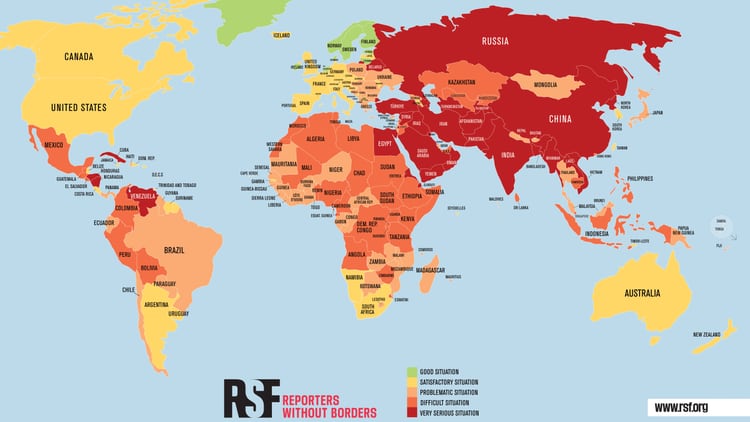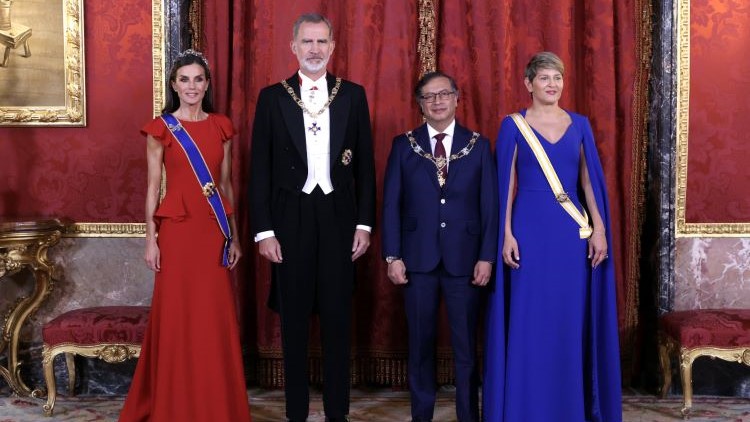The Diplomat
Spain has dropped four places in the Reporters Without Borders World Press Freedom Index 2023 to 36th place, although it has lost only 1.34 points in the overall ranking.
According to the Reporters Without Borders World Press Freedom Index 2023, presented yesterday in Cadiz to coincide with World Press Freedom Day, Spain has gone from 76.71 points out of 100 in the 2022 edition to 75.37 points in the 2023 edition.
Despite enjoying, in general, a favourable climate for the free exercise of journalism and remaining among the 30% of countries in the world with a “good or fairly good” situation for freedom of information, media professionals in Spain continue to suffer a “worrying and already chronic” precariousness, reports Europa Press.
It is precisely the economic indicator in which Spain once again recorded its worst result, falling to 60.33 points out of 100, in 2023, compared to 63.38 in 2022. RSF considers that the economic context in which Spanish journalists operate “is by far the indicator with the worst score” by the panel of press freedom experts (researchers, university professors, journalists, human rights and freedom of expression specialists…) who answered the hundred or so questions that make up the questionnaire on which the qualitative section of the RSF ranking is based.
Another factor that explains Spain’s drop in the ranking is the worsening of the legal and juridical indicator – which measures the legislative context in which the journalistic profession operates – a movement that RSF interprets as unfavourable expectations regarding the repeal of the most controversial articles of the “Gag Law”, which are harmful to freedom of information.
According to the RSF report, the blockage in Congress of the reform of the law, “one of the main promises of the government and its partners for the current legislature, has cooled the perception that experts in the sector have of the legal and juridical environment surrounding the press in Spain”.
The journalists’ organisation also recalled that other reforms to decriminalise so-called “crimes of opinion” have not gone ahead, and yet “abusive legal actions (SLAPP) against the media and journalists have multiplied”. The legal context indicator falls to 78.74 points from 82.16 in 2022.
The strong politicisation of the media, increasingly infected by the polarisation affecting Spanish politics and increasingly “incapable of respecting the essential limits between information and opinion, also contributes to the erosion” of press freedom in Spain.
However, Reporters Without Borders points out that the country’s socio-cultural climate is among the most favourable to freedom of information in the region, and attacks on the press are at historic and European lows, after years of much greater police and public violence.
Journalists, however, see this improvement counterbalanced by a worsening of hostility and harassment on social networks.







